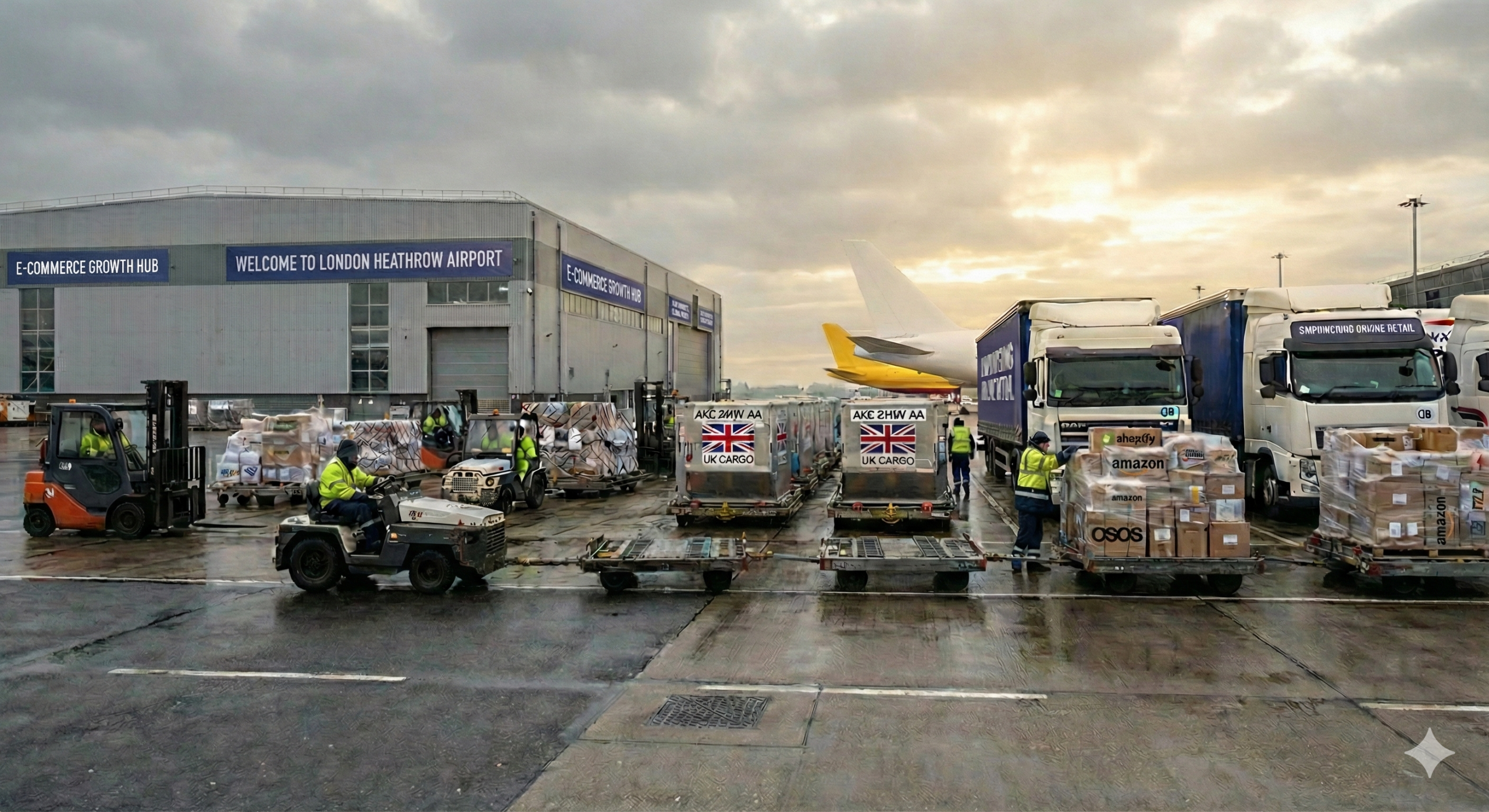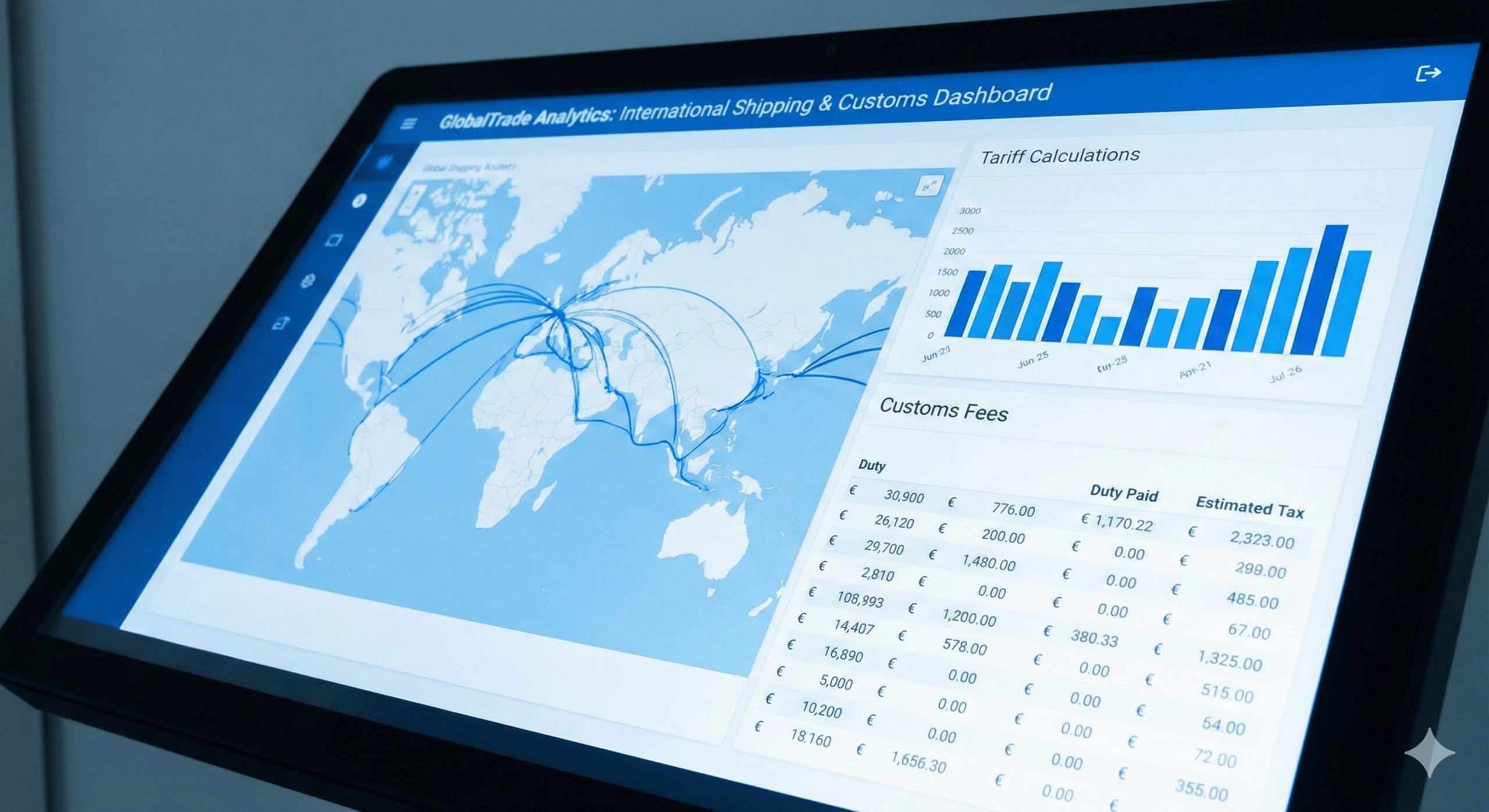The European Union (EU) has set a global standard for sustainability, pushing businesses to rethink their practices in ways that protect the environment while meeting the needs of a conscientious consumer base. With several recent regulations being put into force, companies shipping to or operating within Europe are under increasing pressure to adopt eco-friendly practices to meet Europe's sustainability standards, or face fines and other serious consequences.
Failing to comply with these measures isn’t just a regulatory issue; it’s also a risk to your brand’s reputation and bottom line. A 2023 survey revealed that 70% of European consumers prefer brands that demonstrate eco-friendly values, with sustainability often ranking as a key factor in purchase decisions.
In this post, we’ll explore how these regulations are reshaping the eCommerce landscape, what businesses must do to stay compliant, and why aligning with sustainability isn’t just good for the planet—it’s essential for your brand’s survival. Let’s dive into the practical steps and critical insights you need to navigate this new era of responsible eCommerce.
Understanding Europe’s Sustainability Standards
The European Union’s drive toward sustainability is codified in a series of stringent regulations designed to reshape how businesses operate. For eCommerce brands, these standards demand a proactive approach to packaging, environmental claims, and waste management. Let’s break down the most impactful EU-wide regulations you need to know.
Packaging and Packaging Waste Directive
The Packaging and Packaging Waste Directive sets clear requirements for businesses to reduce packaging waste and improve recyclability. This regulation emphasizes minimizing excessive packaging, promoting reusable materials, and ensuring all packaging is recyclable.
The directive set specific recycling targets, mandating that 55 to 80 percent of all packaging waste be recycled. These goals vary by material, requiring 60 percent for glass and 60 percent for paper and cardboard as well.
If not compliant, eCommerce retailers can be fined and banned from selling in EU member states for failing to meet packaging waste reduction standards.
Key takeaways for eCommerce brands:
- Reduce single-use plastics in packaging.
- Increase use of biodegradable or recyclable materials.
- Take accountability for the entire lifecycle of packaging materials.
Circular Economy Action Plan
The Circular Economy Action Plan is a bold EU initiative aimed at transforming Europe’s approach to production and consumption. One of its standout goals is ensuring all packaging in the EU is reusable or recyclable by 2030. For eCommerce businesses, this means rethinking packaging design and embracing sustainable alternatives.
This regulation also promotes the repair, reuse, and recycling of products, tying into broader sustainability goals. Businesses that fail to adapt risk falling behind as the EU prioritizes a circular, waste-free economy.
Green Claims Directive
The Green Claims Directive tackles one of the most contentious issues in sustainability: misleading eco-friendly claims, commonly called greenwashing. Companies must now substantiate any green claims with concrete evidence and avoid vague or exaggerated statements. For instance, terms like “environmentally friendly” or “sustainable” must be backed by verifiable data.
Multiple major international brands have been tried and fined under this directive for making unsubstantiated claims about their products’ recyclability. Beyond fines, the brands faced significant reputational harm. These cases send a clear message to businesses that greenwashing is no longer tolerated.
Key takeaways for eCommerce businesses:
- Avoid vague sustainability terms unless supported by data.
- Be transparent about your product’s environmental impact.
- Invest in certifications or third-party verification to substantiate claims.
Country-Specific Rules to Watch For
While the EU enforces many overarching sustainability regulations, individual member states often implement their own unique rules. For eCommerce brands operating in Europe, understanding and adhering to these country-specific requirements is critical for compliance and market success. Let’s dive into key markets and their distinct regulations.
Germany: Leading the Way in Sustainability and Re-Commerce
Germany sets a high bar for sustainability in eCommerce, with regulations that emphasize reducing packaging waste and encouraging re-commerce (the resale of unsold goods). Businesses are expected to minimize packaging materials and opt for recyclable or biodegradable alternatives. For example, companies found using excessive or noncompliant packaging have faced fines and restrictions on their operations within Germany.
As a pioneer in re-commerce, Germany encourages brands to integrate resale options for returned or unsold items directly on their platforms, aligning with the nation’s circular economy goals. Failure to comply with these standards not only risks financial penalties but also alienates environmentally conscious German consumers.
France: Repairability Scores and Sustainable Packaging Mandates
France has introduced some of the most consumer-friendly sustainability regulations in Europe, requiring businesses to display repairability scores on certain products. This measure helps consumers make informed decisions about product longevity and repairability, creating additional pressure on businesses to design durable, repairable items.
France also enforces strict packaging mandates. Nonrecyclable packaging is heavily penalized, and businesses are required to adopt sustainable packaging materials.
Spain: Eco-Friendly Delivery and Low-Emission Zone Restrictions
Spain has placed significant emphasis on eco-friendly delivery practices, driven by the establishment of low-emission zones in cities including Barcelona and Madrid. Businesses are encouraged—and in some cases, required—to use sustainable delivery methods such as electric vehicles or bicycle couriers within these zones.
Companies to Look To: U.S. Brands Thriving in Europe
Many U.S. companies have successfully expanded, or remained successful with their expansion, within the European market in large part by prioritizing sustainability. Consider these examples:
- Patagonia. By aligning with EU sustainability standards, including offering repairable products and using eco-friendly packaging, Patagonia has built a loyal customer base across Europe.
- Nike. The brand’s European operations emphasize sustainable packaging and the use of recyclable materials, earning it recognition for eco-friendly practices in key markets like Germany and France.
- Allbirds. This U.S. shoe brand gained traction in Europe by marketing its products as sustainable and meeting strict environmental regulations, including full transparency about its carbon footprint.
These companies demonstrate that compliance isn’t just about avoiding fines; it’s a pathway to competitive differentiation and long-term growth.
Actionable Steps to Ensure Compliance
Navigating the complex regulatory landscape of the European Union requires a proactive and strategic approach. Here’s a roadmap of actionable steps your U.S. eCommerce brand can take to ensure compliance and succeed in the European market.
1. Conduct a Packaging Audit
Start by evaluating your current packaging materials and processes:
- Assess for recyclability and sustainability. Are your materials recyclable, biodegradable, or reusable? Identify any noncompliant elements and prioritize their replacement.
- Identify improvement areas. Look for excessive packaging, unnecessary plastic, and hard-to-recycle components. Streamline your packaging to meet EU standards while maintaining product safety.
2. Choose Sustainable Materials
Invest in packaging that aligns with EU sustainability goals:
- Recyclable materials.: Use paperboard, cardboard, or recyclable plastics to reduce waste.
- Biodegradable options. Explore plant-based materials or compostable films to minimize environmental impact.
- Reusable alternatives. Offer reusable packaging, particularly for high-value items.
Additionally, sourcing materials within Europe can significantly reduce your carbon footprint and enhance your brand’s sustainability image. Local sourcing also helps you meet EU circular economy objectives by promoting regional supply chains.
3. Implement Transparent Labeling
Clear, honest labeling is critical for compliance and consumer trust:
- Include recycling instructions. Make it easy for consumers to recycle your packaging with clear, step-by-step guidance.
- Highlight sustainability certifications. If your materials meet recognized standards such as FSC or EU Ecolabel, display these prominently to reassure customers.
- Avoid greenwashing. Back up eco-friendly claims with data and certifications. For instance, instead of “eco-friendly,” specify “100% recyclable material.”
4. Collaborate with Local Experts
Navigating EU regulations can be daunting, but local partnerships can make all the difference:
- Partner with compliance consultants. EU-based experts can help ensure your operations align with local and EU-wide laws.
- Work with logistics providers. Partnering with EU logistics companies can help optimize your supply chain and meet sustainability requirements, such as low-emission delivery options.
5. Monitor and Adapt to Regulatory Changes
EU regulations are constantly evolving, so staying informed is essential:
- Track changes in real time. Use tools or software platforms that monitor updates to EU laws, ensuring your compliance strategies stay current.
- Proactively adapt. Regularly review your operations and adapt to new rules, such as changes to packaging waste directives or repairability score requirements.
The Path to Compliance
By following these steps, your brand can navigate the complexities of EU regulations while showcasing your commitment to sustainability and gaining a competitive edge in the European market.
Stay Compliant with ePost Global
Navigating the European Union’s stringent sustainability regulations may seem daunting, but it also represents an opportunity to align your brand with the values of a conscious and eco-focused market. By adhering to these standards, your business can avoid fines, build consumer trust, and position itself as a leader in responsible eCommerce.
At ePost Global, we can make your journey to compliance significantly easier. As an experienced international shipping partner, we specialize in helping businesses navigate the complexities of cross-border logistics and meet regulatory requirements. From ensuring your packaging and shipping methods align with EU standards to offering resources for sustainable practices, we’re here to support your success in the European market.
Contact us today for resources, consultations, or tailored solutions that make compliance effortless—because staying compliant isn’t just a necessity; it’s a pathway to long-term growth.




